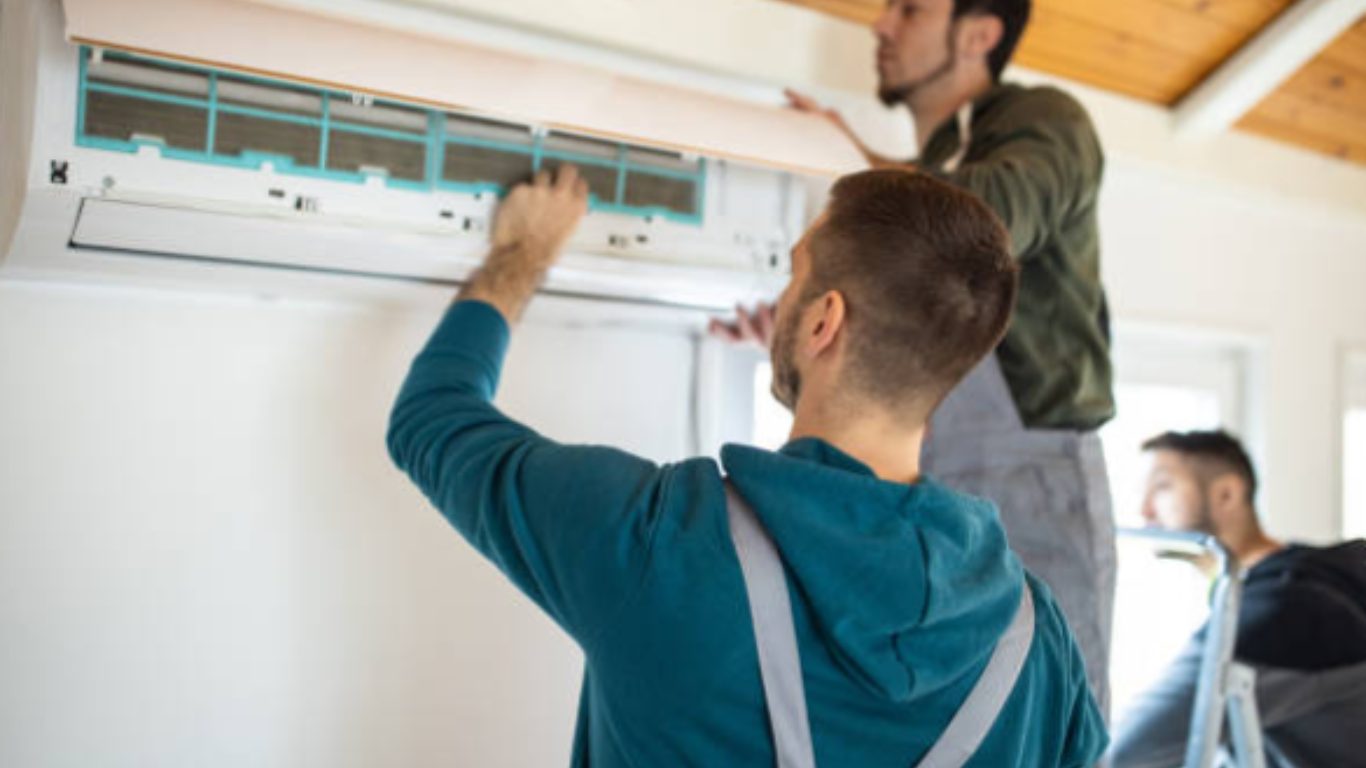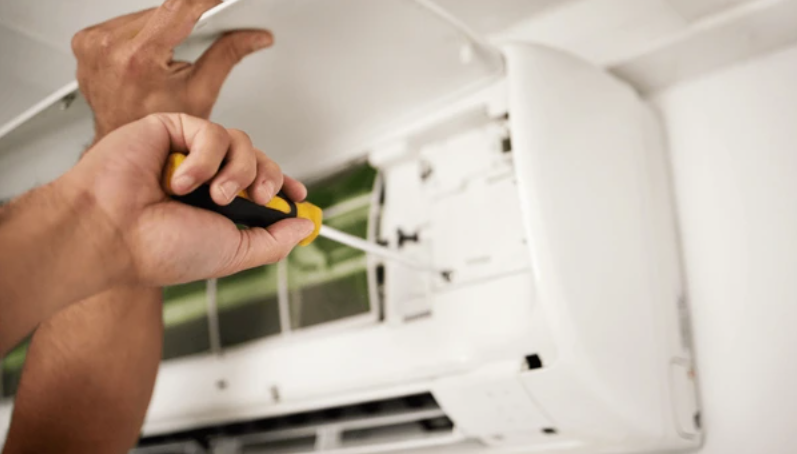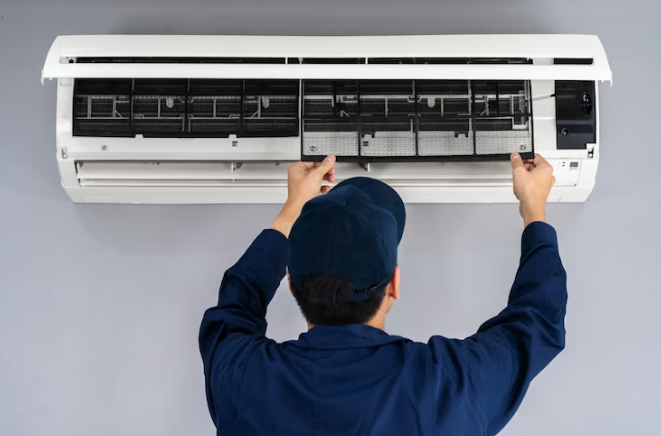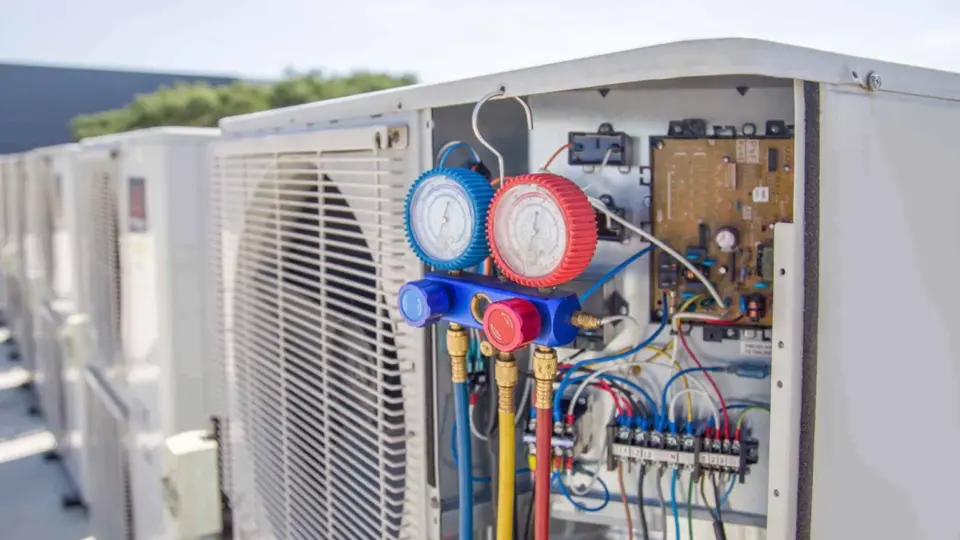When the summer heat starts to climb, we all rely on our air conditioning systems to keep us cool and comfortable. But what happens when that AC unit is no longer performing at its best? Many homeowners delay replacing their old, inefficient AC units in hopes of avoiding the upfront costs. However, what they don’t always realize are the hidden costs that can pile up, making procrastination a more expensive choice in the long run.
While the idea of replacing your AC system might seem daunting, putting it off can have a number of consequences. The impact of a worn-out air conditioner goes beyond just discomfort in the heat—it can affect your wallet, your home’s air quality, and even your overall safety. In this blog, we’ll explore why delaying your AC replacement is a costly mistake and why you should consider replacing it sooner rather than later.
What are the Financial Consequences of Delaying AC Replacement?
The most obvious reason to replace an outdated air conditioning unit is financial. If you’ve been holding onto your old AC in the hopes of saving money, you may actually be costing yourself more in the long run.
1. Higher Repair Costs
As AC units age, they become more prone to breakdowns. It’s not uncommon for older systems to require frequent repairs. While a one-time fix might seem inexpensive, the recurring cost of repairing an aging AC system can quickly add up. What starts as a simple repair can snowball into a series of expensive fixes, leaving you with a mounting bill that could’ve been avoided by replacing the unit entirely.
- Repairs vs. Replacement: In many cases, the cost of multiple repairs over the lifespan of an old AC unit can be close to or even exceed the cost of replacing it with a new, more efficient system.
- Decreased Efficiency: As your AC unit ages, parts begin to wear out, and it becomes less efficient at cooling your home. This means it has to work harder, putting more strain on its components and increasing the likelihood of needing more repairs.
2. Rising Utility Costs
An old air conditioning system is inherently less efficient, which leads to higher energy consumption. As your system struggles to keep up with cooling demands, it draws more electricity, leading to a significant increase in your monthly energy bills. In fact, according to the U.S. Department of Energy, replacing an old AC unit with a more energy-efficient model can save homeowners up to 20-40% on cooling costs.
- Wasted Energy: Older systems use outdated technology and refrigerants that are less efficient than modern models, meaning they consume more energy to cool the same amount of space.
- Constantly Running: As your AC struggles to cool your home, it often runs longer cycles, using more electricity to try to reach the desired temperature.
The financial consequences of continuing to run an old AC unit are not just a one-time increase in your electric bill. Over time, these costs add up, and you could find yourself paying significantly more each month than you would with a newer, more energy-efficient system.
3. Lower Resale Value
If you’re planning to sell your home in the near future, an outdated AC system could potentially lower your property’s resale value. Homebuyers tend to shy away from homes that require significant repairs or upgrades, especially for expensive items like HVAC systems.
If your AC unit is nearing the end of its lifespan, a potential buyer might factor in the cost of replacing the system when making an offer on your home, or they might opt for a different property with a newer, more reliable system.
How Does An Old AC System Impact Indoor Air Quality?
You might think that the only downside of an aging AC system is its inefficiency, but there are other hidden risks—like a decline in indoor air quality—that can be just as damaging to your health and comfort.
1. Accumulation of Dust and Allergens
As your AC unit ages, its ability to filter air effectively diminishes. Over time, dust, dirt, and allergens build up in the system, and these particles are recirculated throughout your home when the AC is running. Poor filtration can lead to indoor air quality issues, especially for individuals with allergies or respiratory issues.
- Clogged Filters: As filters become clogged with dust and debris, they reduce airflow and strain the system, making it work harder. This not only impacts efficiency but also increases the amount of dust and allergens that circulate in your home.
- Mold Growth: Older AC units with worn-out components can also trap moisture, creating the perfect environment for mold growth. Mold spores can be released into the air, exacerbating health problems and creating a musty smell in your home.
2. Inconsistent Temperature and Humidity Control
An old AC system may have difficulty maintaining a consistent temperature or controlling humidity levels in your home. This inconsistency can make indoor spaces uncomfortable, with areas that feel too hot or cold or too damp. High humidity can promote mold growth and increase the likelihood of allergens and other irritants in the air.
- Unstable Cooling: With an inefficient system, temperature regulation can become uneven. You might experience hot spots or cold spots in your home, making it difficult to stay comfortable.
- Excess Moisture: Older systems often fail to dehumidify air as effectively as newer models, leaving your home feeling sticky and damp.
In the long run, these issues could lead to more serious health problems and discomfort for everyone in your household.
Why Do Energy Bills Increase When an AC Unit is Outdated?
As we’ve already touched on, energy bills are a significant concern when it comes to running an old air conditioning system. But why exactly do energy bills increase, and what can be done about it?
1. Inefficient Technology
Older air conditioners use outdated technology that isn’t nearly as efficient as modern units. Many older models use refrigerants that are less energy-efficient, and the compressors and motors aren’t designed to handle the energy-saving capabilities that newer models offer. In fact, older systems could be using up to 60% more energy than newer, more efficient models.
- Less Effective Refrigerants: Older AC systems use refrigerants that have been phased out in favor of more environmentally friendly options. These refrigerants not only contribute to higher energy consumption but are also more harmful to the environment.
- Outdated Components: Modern air conditioners are designed to use energy more efficiently, with smarter technology that optimizes the system’s energy use. Older systems simply don’t have this level of sophistication, meaning they use far more energy.
2. Larger Cooling Cycles
With an old AC system, the unit often has to run longer cycles to reach the desired temperature. This results in higher energy consumption and, ultimately, higher costs for you. Additionally, longer cooling cycles cause more wear and tear on the system, which leads to more frequent repairs and replacements.
3. Lack of Programmable or Smart Technology
Modern air conditioning systems often come with smart technology that allows homeowners to control the temperature remotely and program cooling schedules. This technology optimizes energy use by adjusting the temperature when you’re not home or during the night when cooling demands are lower. An older unit lacks these features, which can lead to unnecessary energy consumption and higher utility bills.
How Can Postponing AC Replacement Lead to Unexpected Repair Costs?
Putting off your AC replacement may seem like an easy way to save money upfront, but in reality, it can lead to unexpected repair costs that add up over time. As your air conditioning system ages, the likelihood of a complete breakdown increases. Not only can these breakdowns leave you without cooling during a heatwave, but the repairs themselves can be costly and inconvenient.
1. Unexpected Breakdowns
Older air conditioning units are more prone to complete breakdowns. As the system ages, parts wear out and fail, often without warning. This could leave you in the middle of a hot summer day without air conditioning, which is not only uncomfortable but potentially dangerous for elderly individuals or young children. Emergency repairs often come with premium prices, adding even more expense to your budget.
2. Expensive Parts and Labor
As your AC system gets older, it may require replacement parts that are hard to find or expensive. The cost of labor for repairs on older systems can also be higher, especially if the technician needs to spend additional time diagnosing and troubleshooting outdated equipment.
3. Frequent Small Repairs
Rather than experiencing one large failure, an older AC unit might need frequent small repairs. While each individual repair may seem inexpensive, the cumulative cost of multiple repairs can quickly add up. This is often more expensive than simply replacing the unit and investing in a more energy-efficient system.
Delaying the replacement of your air conditioning system may seem like a way to save money in the short term, but the hidden costs associated with keeping an old, inefficient unit can quickly outweigh any perceived savings.
From higher repair bills and energy costs to poor indoor air quality and potential health concerns, an outdated AC system can lead to a host of problems that affect both your finances and your comfort.
By investing in a new, energy-efficient AC unit, you not only improve your home’s cooling capabilities but also ensure better air quality, lower energy bills, and a more comfortable environment.
So, if your AC system is aging or showing signs of inefficiency, don’t wait for the inevitable breakdown. Replace it now, save yourself the hidden costs, and enjoy the benefits of a cooler, more comfortable home.
Keep Your Home Cool and Efficient with Elite Air & Heat of SummerVille
At Elite Air & Heat of SummerVille, we specialize in providing top-quality air conditioning replacement and repair services that will help you beat the heat and save on energy costs. Whether your AC unit is on its last legs or you’re simply looking to upgrade to a more energy-efficient model, our team of experienced technicians is here to guide you every step of the way.
Contact Elite Air & Heat of SummerVille today to schedule your consultation and learn how we can help improve the comfort and efficiency of your home. Don’t wait until your old AC system breaks down—let us provide you with reliable, long-lasting solutions that keep your home cool, comfortable, and cost-effective all year round!





